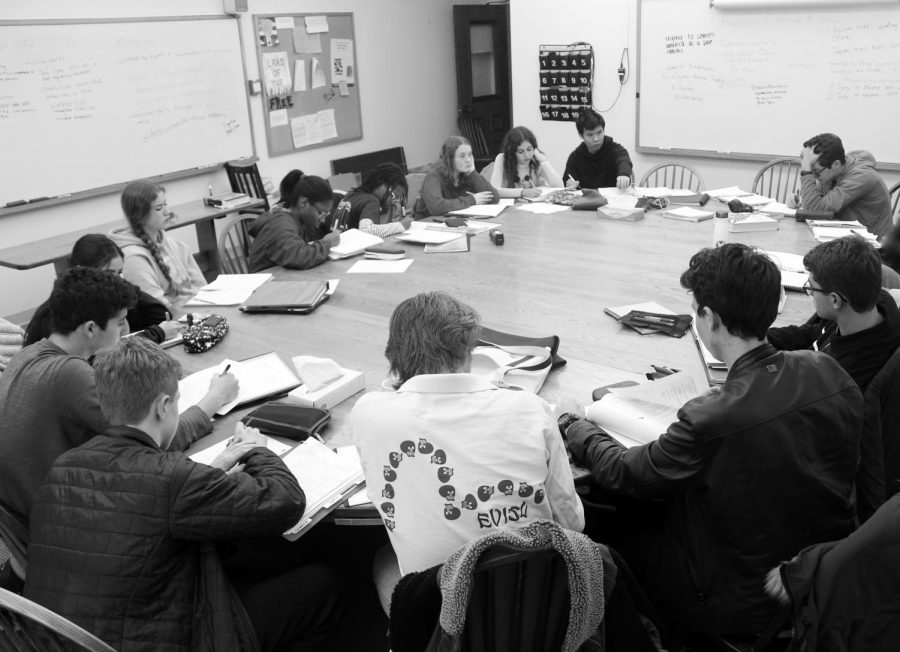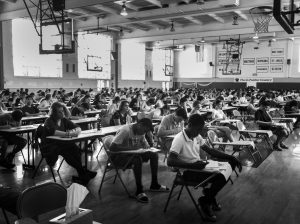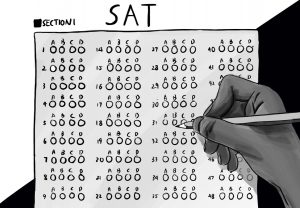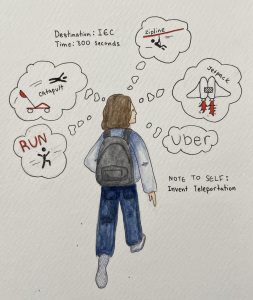The Revolutionary War can wait
President Trump delivered his State of the Union Address on Feb. 4; the speech is one of many notable political events that have occured since the start of 2020. Little time in most classes has been devoted to explanation and discussion of these events.
February 20, 2020
Whenever I’ve needed the definition to a word, had to make sense of a passage in a book or wanted to know more about the ever-changing, complicated world in which we live, my dad has been my fountain of answers. I often pick his brain in the car – I asked him about the impeachment – and moan when I expect a one sentence response but get a five minute animated news report. It sometimes gets annoying, but I’ve come to realize: if my dad wasn’t going to explain it to me, who was?
This year I’m in a United States history class. We spent twenty minutes during one class talking about the impeachment – but other than that we’ve barely spent any time discussing current political events. School is where I come to learn, but I’m not receiving enough insight on the events that are impacting our nation right now, and that will affect my life, the lives of my peers and others in the future.
I’ve never been a “news junky”; I’m a diehard sports fan. But I’ve come to understand that sometimes what is going on in the political sphere is too substantial to ignore. Scrolling through articles trying to make sense of what’s going on; watching CNN to hear analysis from Anderson Cooper can only take one so far. It’s like going on YouTube and watching math videos for hours on end, trying to understand how to do long-division. But somehow it just doesn’t make sense without working through it in class.
The twenty minutes we spent in my history class talking about impeachment cleared up so much confusion; the five minutes I spent listening to my dad did the same. Understanding of these current events is vital; soon enough, the current generation of high school students is going to be the next generation of working people in America. Some will be politicians. Others will be journalists. Some will be working on Wall Street. Whatever it may be, national and global politics are going to have an incredible impact on the lives of our generation and it only makes sense to best educate them for the future.
It should be acknowledged that all courses at Masters are based off of a day-to-day curriculum that is often devised well in advance; this includes Advanced Placement classes, in which the teacher is required to teach, for the most part, to a curriculum that is set by an outside agency, often with very little flexibility.
Political bias is also a major concern; who’s to say that teachers are the all-knowing gods of current events who should be influencing the political views of teenagers? But who’s to say that the New York Times or the Washington Post is the Bible either?
Teachers are experts; they are passionate about educating and are incredibly qualified to do so. The in-person conversation with a teacher often holds significantly more weight than reading something off of a screen. They help others synthesize information and allow students to think more deeply on a topic or issue. Why should they be restrained from doing so when it comes to current events?
Teaching about current events is different from an opinionated analysis of current events. There’s a grey area in between, surely, but getting some exposure is better than hearing none at all.
Perhaps students would be better prepared to have their own viewpoints and back them up with reasoning if they were better informed on the significant current events going on around them. Perhaps by better educating the next generation we can cultivate a population of individuals who understand how the government works, how our nation functions, and how the national and global events impact the lives of individuals across the world.
The Masters School currently offers a political science class in twelfth grade; but these issues should not be constrained to a specific course but rather be implemented into all history courses across the board.
As the old adage goes: “history repeats itself.” Therefore, we need to be informed on the past to better prepare for the future. What is happening now has immediate effects – it can not be ignored. The Revolutionary War can wait.


















